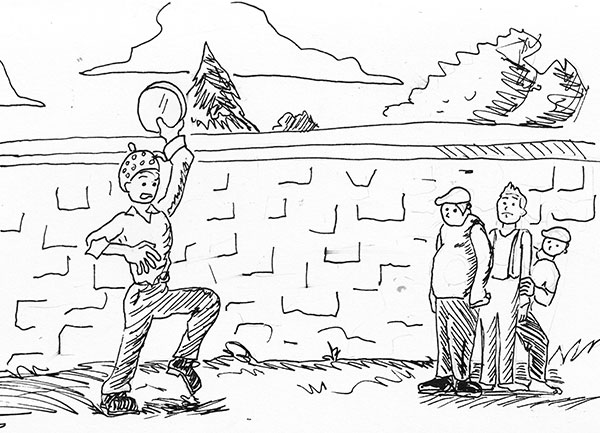It was Joe Dillon who introduced the Wild West to us. He had a little library made up of old numbers of The Union Jack, Pluck and The Halfpenny Marvel. Every evening after school we met in his back garden and arranged Indian battles. He and his fat young brother Leo, the idler, held the loft of the stable while we tried to carry it by storm; or we fought a pitched battle on the grass. But, however well we fought, we never won siege or battle and all our bouts ended with Joe Dillon’s war dance of victory. His parents went to eight-o’clock mass every morning in Gardiner Street and the peaceful odour of Mrs Dillon was prevalent in the hall of the house. But he played too fiercely for us who were younger and more timid. He looked like some kind of an Indian when he capered round the garden, an old tea-cosy on his head, beating a tin with his fist and yelling:
“Ya! yaka, yaka, yaka!”
Everyone was incredulous when it was reported that he had a vocation for the priesthood. Nevertheless it was true.
A spirit of unruliness diffused itself among us and, under its influence, differences of culture and constitution were waived. We banded ourselves together, some boldly, some in jest and some almost in fear: and of the number of these latter, the reluctant Indians who were afraid to seem studious or lacking in robustness, I was one. The adventures related in the literature of the Wild West were remote from my nature but, at least, they opened doors of escape. I liked better some American detective stories which were traversed from time to time by unkempt fierce and beautiful girls. Though there was nothing wrong in these stories and though their intention was sometimes literary they were circulated secretly at school. One day when Father Butler was hearing the four pages of Roman History clumsy Leo Dillon was discovered with a copy of The Halfpenny Marvel.

